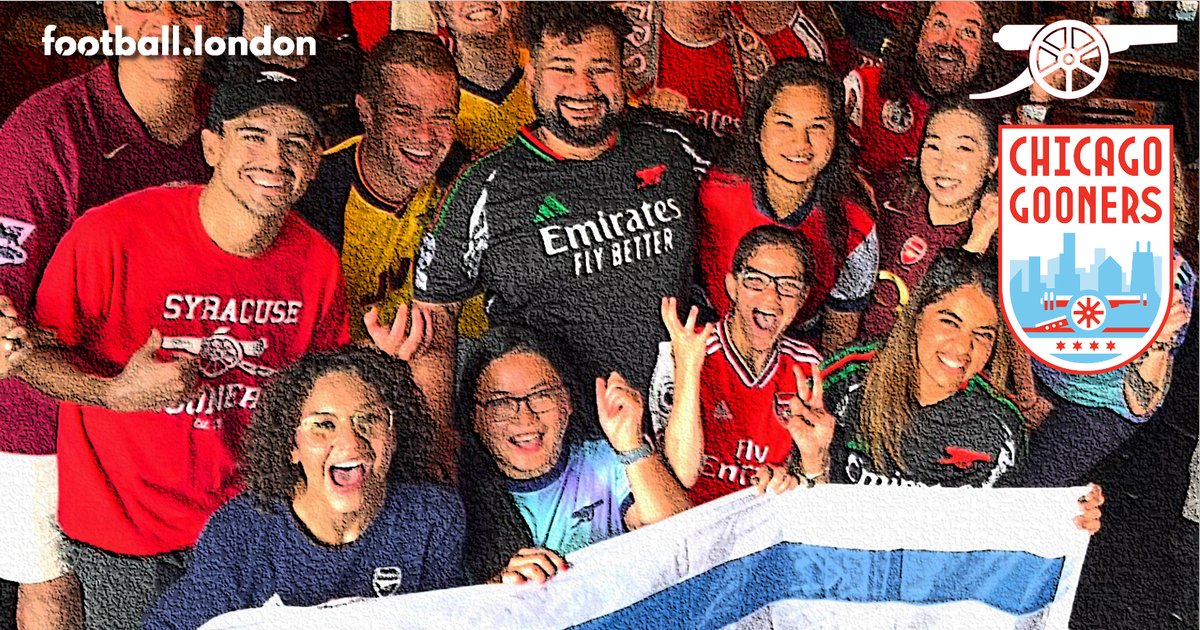
The Emirates Stadium has reportedly been the subject of discussions over a potential expansion as revealed during the international break. An expansion would hope to bring both additional revenue, but also solve many of the complaints about the difficulty of acquiring matchday tickets.
Mikel Arteta’s tenure with the club has helped bring unity back to Arsenal for both the team and the supporters. However, the application process has threatened to undermine much of that, with a growing frustration amongst supporters in their access to games where before they had much better luck in acquiring tickets.
Much of this is to do with the change of system from the old ticket queue to a ballot, which makes the selection random for those who apply instead of those sitting in the queue waiting to grab those seats when they first become available. While this continues to be a point debated by supporters, one rather darker aspect of the change has seen a rise in perceived discrimination to a section of the fan base.
The label of ‘tourist fans’ or sometimes ‘plastic’ has emerged over the last few years and is a term used by individuals with criticisms of Arsenal supporters from outside the local area allegedly getting easier access to tickets under the new system, thus blocking supporters who were more regular attendees from getting seats. This is of course contentious and the ballot has arguably made it harder for fans from abroad to commit to games due to the lottery aspect of the process.
To find out the impact of this movement against those who support the club from outside not just London but England entirely, football.london spoke to Dili Yang and Jim Zigulich, board members of the Chicago Gooners – a brand of Arsenal America.
Firstly, I think it is important to get a sense of what Arsenal means to supporters like Dili and Jim. While fans abroad are less likely to have inherited their fandom, that certainly does not diminish the weight of the club’s attachment on their lives.
“For those of us in Chicago who support the club, Arsenal is a massive part of our day-to-day lives,” Jim explains. “During the season, our plans revolve around matchday.
“Our core group has multiple group texts/chats where we are discussing information and events surrounding the club on a daily basis as I’m sure is the same for millions of other supporters.”
Dili adds to this with a very personal benefit that has come from adopting the club as her own. “I’ve met about 75% of my friends through Chicago Gooners over the past decade, and I also met my husband through supporting Arsenal as well.
“Shoutout to Gooner Gras! The network of fans in the US is phenomenal and I feel like I have friends in every corner of the country as well as all over the world just by supporting the club.
“It’s an obsession and a priority. Watching the matches, building community and doing good in the community, and sharing in the highs and lows of this fandom are absolutely essential parts of my life.”
Patrick Vieira recently joined the Chicago Gooners for an event organised with the help of Jim in collaboration with the Premier League. “I had to go through underground networks to get that organised without the rest of the board knowing and had to keep that a secret until it actually happened. What a great treat sponsored by the Premier League in USA.”
Dili, who was also there and gifted the former Arsenal captain one of their bespoke scarves said: “He was pure class and as good as there is as a representative of the club.”
Yet it has been moments like this that has sparked jealousy or envy from other supporters and contributed to this attempt to divide the fanbase. Out of that and in combination with the aforementioned ticket drama has come this term ‘tourist fan’.
Thankfully for both Dili and Jim, it appears something which has grown online has, for the most part, stayed online. “Thankfully, I haven’t had a negative experience being a ‘tourist fan’,” Jim said.
“When people come to Chicago they seek us out for matchdays; including those who are here from overseas. I think when people get to know us, whether from another state here in the US or from the UK, they realise how passionately we support Arsenal. When I’m over in London the fellow supporters I’ve met have been gracious and extremely welcoming.”
Dili echoes Jim’s sentiments. “In my personal experience, I see the criticism every once in a while online; but my in-person experience has been nothing but great. At least, nobody’s been rude enough to say anything to my face about it.
“I’ve been to London a number of times and always have a blast – and whenever I meet people who come to the Globe Pub on matchdays while visiting from London, they have nothing but good things to say about our group and the reception they get here!”
Now, I personally have experienced these trends and spoken to fans on the record who have said some outlandish things about fans from abroad, hence the inspiration behind this project. Part of that element is accusations that the atmosphere in the Emirates Stadium has been negatively affected by the presence of those who have claimed this label.
It would be fair to say Dili has a strong view on this concept: “I would say that this is an idiotic statement.
“Maybe the rare fan will be a shallow tourist fan, but more likely than not, those individuals have spent thousands of dollars on flights/hotels/travel (not to mention paid-time-off; very limited and precious in certain sectors here in the US) to see the Arsenal and are dedicated, passionate fans who are more than willing to contribute to the atmosphere rather than take away from it.
“I’m not going to get started, but there are probably six-seven different factors I can talk about when it comes to improving the atmosphere at the Emirates before we even need to touch on ‘tourist fans’.”
And yet, for many that is one of these critics’ go-to arguments. Jim, who has been to many games, explains exactly how he and other fans from outside London behave and contribute to the matchday atmosphere.
“Personally, if I am going to put in the time, planning and money to get to London to see Arsenal I have (and would) pour my heart out singing and supporting during the match,” he says.
While having not experienced it personally, it is evident when asked whether the ‘tourist fan’ phenomenon has changed the way they view either the club, its fans or their own individual fandom, and I have to say I love both responses. “Other people’s opinions of so-called ‘tourist fans’ has absolutely no impact on my attachment to Arsenal,” Jim explains.
“Personally, I don’t think it’s my business to judge another person’s ‘fandom’. Everyone is entitled to support in their own way, and if the atmosphere is lacking because of so-called ‘tourist fans’ from outside London, then those who are from London and deem themselves more fanatical about the club should be picking up the slack!”
Dili said: “Yes and no. I’ve learned to liberally use the block button online and avoid the worst parts of social media — because that’s where most of the complainers are.
“In a way, I guess I’ve changed my social media habits because of online toxicity. In-person, though, it hasn’t changed much. Most Arsenal supporters that I meet are great people.”
Dili went on to liken the discrimination that fans from outside London experience to the sexism that women suffer in the sport. “I feel like it’s very similar to the sexism that female fans deal with…. ‘Oh, you’re not a real fan, how did your boyfriend get you into it?’. It’s just so idiotic and frustrating.”
While I cannot say that I know how that feels, I empathise with Dili wholeheartedly. Being married myself to a football-loving wife, I’ve learned from her the challenges of being a woman in the online space and attending games.
I wanted to end both chats on a positive, and while I didn’t angle the question to set that up, the answers from both on whether they’d felt the support from the club and fellow fans on the issue was unsurprisingly unanimous.
“I feel a strong connection to the club and I’ve been very lucky to meet lifelong friends, both from the states and local to London, through my support of Arsenal,” said Jim. “Additionally, I think Arsenal coming to the States in the summer has helped American supporters connect with the club on a greater level.
“I think that if those who question the seriousness of ‘tourist fan’ support were over in the summer and spent time with us they would understand how passionate we are about our club.”
Dili again offers similar sentiments while also humbly admitting that American fans in particular have received perhaps more attention than others. A topic for another day, but one that the club should perhaps be looking into when it comes to future tours and events.
“I’ve probably been to London eight to nine times and I want to go back as frequently as I can, but even if I can’t go back anytime soon, we have a good group here in Chicago,” Dili said. “As a US fan, I will say that I also feel like the club has given us a bit of preferential treatment with a lot of the recent summer tours all coming our way… I think they can see the passion that we have here.
“You have to be passionate to wake up that early in the morning to watch the matches! Most recently, I was really impressed with how much the club supported the Arsenal Women’s portion of the US tour. It was well-organised and such a fun time despite the heat and the result.
“Chicago Gooners also get a lot of love from other supporters on both sides of the pond. We promise to only make you all do a shot of Malort one time!”
While I whole-heartedly recommend connecting with the Chicago Gooners if you happen to be headed that way… I’d stop short of echoing the thoughts on Malort. Warning: it’s an acquired taste!





